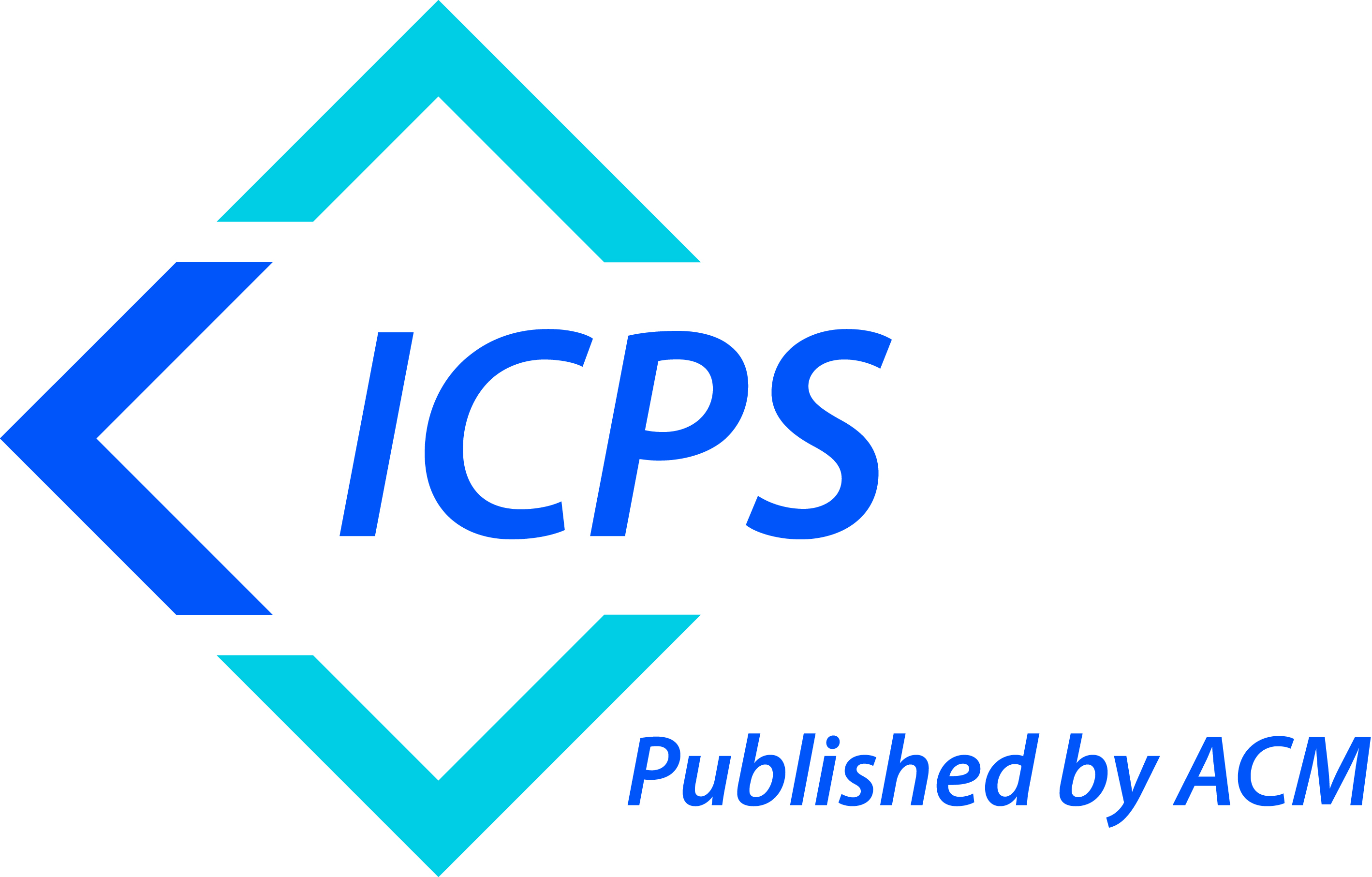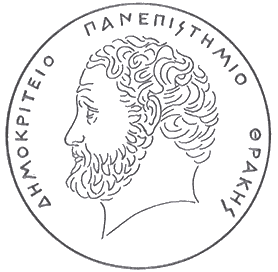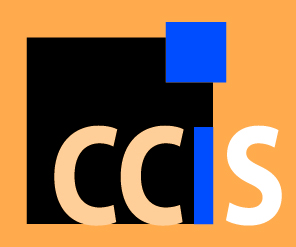2nd Workshop on Innovative European Policies and Applied Measures for Developing Smart Cities (IPMSC2015)
Invited talk
“Assurance of Security and Trust in Cloud Environments
- a prerequisite for market acceptance for critical infrastructure IT”
Dr. Helmut Leopold, Head of Department of Safety and Security, AIT
Cyber Security Research @ AIT Austrian Institute of Technology
Information and Communication Technology (ICT) systems and networks became one of the most relevant critical infrastructures of our society. Virtualization of IT-Services based on Cloud Computing will be one of the main disruptive drivers in all future markets: production (industry 4.0), energy, eHealth, eGovernment, smart cities, eEnvironment, etc. Existing security mechanisms do not address the Advanced Persistent Threats (APT) scenarios of the future. Considering the cyber threats of the future, we will require new functionalities to be able to detect cyber incidents early on, assess potential risks and related negative effects and put in place corresponding preventive counter-measures.
Thus, AIT Austrian Institute of Technology is focusing applied research on three cyber security fields: (i) CAIS Cyber Attack Information System by anomaly detection as well as a trustworthy exchange of information among different stakeholders - CIIS Cyber Incident Information Sharing; (ii) next generation cloud computing environments with highest security, availability and privacy by advanced encryption concepts based on secret sharing as well as security assessment mechanisms of cloud infrastructures; and (iii) risk management methods and tools for ICT based critical infrastructures.
Bio Dr. H. Leopold
In January 2009, Helmut Leopold joined the AIT Austrian Institute of Technology where he holds the position of Head of Safety & Security Department. In just three years after joining the organization, he completely transformed the Department, and has successfully implemented a growth strategy and a business-oriented applied R&D culture. He has initiated a digital safety and security research program, resulting in an international leadership role in important key areas, including cyber security, big data management, large-scale sensor networks, intelligent vision systems, autonomous systems, and highly reliable software and systems.
Prior to this appointment, Helmut Leopold spent nine years at Telekom Austria, the incumbent network operator in Austria. During his assignment with Telekom Austria, he was responsible for IT and network infrastructure development as well as product management. As part of this role, he was the driving force behind Telekom Austria´s cultural change program, transitioning the organization from a telephone network operator to a multimedia service provider. He successfully implemented new technology areas within the company and on the market, such as broadband Internet (xDSL and FTTx), digital TV (IPTV), and Next Generation Network (NGN) transformation programs (e.g., all-optical networks, VOIP, and business and operation support systems). Furthermore, he played a leading role in the realization of a gate-based innovation process for the entire company, in order to harmonize sales, product management, and technical development processes.
He started his career as a research engineer in the field of high performance networking at Alcatel ELIN Research Center in 1989, and then joined Alcatel Austria for five years. Helmut Leopold was born on April 27, 1963 in Hohenems, Austria. He holds a Master's degree (Dipl.-Ing.) in Computer Science from the Vienna University of Technology, 1989.
Helmut Leopold is President of the Austrian Organization for Information and Communication Technology (GIT). He has served on the boards of many organizations providing strategic, technology and business leadership. Helmut Leopold is highly regarded as a visionary speaker on media and telecommunications issues at international level. He is IEEE and AOM member.
Important Dates
Paper submission: May 15th, 2015
Notification of acceptance/rejection: May 24th, 2015
Camera-ready submission: May 31st, 2015
Early registration: June 7th, 2015
Program Chairs
Prof. Kostas Berberidis
Head of Signal Processing & Comm. Lab
Dept. of Comp. Eng. & Informatics, University of Patras, Greece
Tel: +30-2610-996975
e-mail: berberid@ceid.upatras.gr
Dr. Ioannis P. Chochliouros
Head of Research Programs Section Fixed, Hellenic Telecommunications Organization (OTE) S.A., Greece.
Tel.: +30-210-6114651
e-mail: ichochliouros@oteresearch.gr
Dr. Ioannis M. Stephanakis
Hellenic Telecommunications Organization (OTE) S.A., Greece
Tel.: +30-210-6115798
e-mail: stephan@ote.gr
Dr. George Lyberopoulos
Head of Network Evolution Dept., Fixed & Mobile
Tech. Strategy & Core Network Division, Fixed & Mobile
COSMOTE - Mobile Telecommunications S.A., Greece
Tel. +30-210-6374772
e-mail: glimperop@cosmote.gr
Workshop Program Committee(not complete)
- Prof. Vishanth Weerakkody Brunel University, UK)
- Dr. Ramzi El-Haddadeh (Brunel University, UK)
- Prof. Nikolaos Vassilas (Head of Computer Programming Sector, Dpt., of Informatics, ATEI of Athens)
- Prof. George Caridakis (University of the Aegean / NTUA, Greece)
- Dr. Kelly Georgiadou (OTE, Greece)
- Mrs. Maria Belesioti (OTE, Greece)
- Mr. Evangelos Sfakianakis (OTE, Greece)
- Dr. George Diakonikolaou (OTE, Greece)
- Prof. George C. Anastassopoulos (Democritus University of Thrace, Greece)
- Prof. Anastasios Dagiuklas (Hellenic Open University, Greece)
- Prof. Stefanos Kollias (Image Video & Multimedia Laboratory, National Technical University of Athens, stefanos@cs.ntua.gr)
- Dr. Christos Mavrokefalidis (SPCLab Researcher, UPatras / CEID, maurokef@ceid.upatras.gr)
- Dr. Evangelos Vlachos (SPCLab Researcher, UPatras / CEID, vlaxose@ceid.upatras.gr)
- Prof. Christophoros Nikou (Department of Computer Science and Engineering, University of Ioannina, cnikou@cs.uoi.gr)
-
Dr.Noor-ul-Hassan Shirazi (Lancaster University, UK)
Workshop Aim
The Workshop has been established to disseminate knowledge obtained from actual EU projects as well as from any other action of EU-funded research in the wider thematic area of "Smart and Innovative Cities'' by emphasizing upon results and/or findings originating from technical reports/deliverables from related pilots and/or intelligent telecom applications.
Papers coming from the industry and the academia about EU policies and applied measures regarding "smart and innovative cities" in the following areas are encouraged:
Smart cities' applications, strategies and business models; application scenarios in the areas of critical infrastructures (including, inter-alia, transportation systems and infrastructure surveillance); service evaluation and service delivery
Service-Oriented Architecture (SOA); Service business models for critical infrastructures in smart cities; Hosting CI services in the cloud in parallel with security and resilience requirements; Service design, service deployment and service delivery; QoS-related aspects; Infrastructure and Platform-as-a-Service (IaaS & PaaS), Emerging Software-as-a-Service (ESaaS), Big Data-as-a-Service (BDaaS); Knowledge-intensive services; Risk management & service management (especially for critical infrastructure management).
European Union policies and regulatory issues, business aspects and related market practices
Economics for Next-Generation-Networks; Business trends; Cost models and service pricing; Access regulation and migration strategies; Regulatory challenges and assessment of related applied legal measures; Strategic challenges and current European initiatives for research and innovation in the context of modern cities, with specific emphasis given upon critical infrastructures; Experimental results from specific research platforms and of related pilots (i.e.: "Living-Labs"); Societal and environmental aspects of proposed corresponding solutions; Future plans for new use cases, test-beds and local initiatives within the scope of an Internet-based modern society; other Internet-based urban ecosystems.
Distributed signal processing, grid computing, cloud computing and virtualization
Architectures, resource management and protocols, M2M (machine-to-machine) interaction/SDNs and cloud telematics, brokering, Network Functions Virtualisation (NFV), special cloud computing-based applications emphasizing upon service assurance and critical infrastructure.
Internet of the things, wireless sensor networks, ubiquitous and pervasive services - Applications and interaction for social networking
Array processing; Future technologies bridging the physical and virtual worlds; Internet-based ecosystems; Internet services and applications, home area networks, smart home, personal area networks; Impacts on the security, privacy and risks on the physical world.
Connected Vehicles and Intelligent Transportation
Vehicle-to-Infrastructure (V2I) Communications, Vehicle-to-Vehicle (V2V) Communications, Vehicular Ad Hoc Networks (VANET), V2V Security, Cooperative Services, Vehicle Positioning, Cellular-driven Vehicular Network, Road Safety, Hazard Reduction, Cooperative Awareness, Misbehaviour Detection and Mitigation.Intelligent transportation, Vehicle Traffic Modeling, Decentralized Congestion Control, Autonomous Cooperative Driving, Location-dependent Services.
AI applications and agents in telecommunications & Applications of Neural Networks in engineering and telecommunications
Service-oriented agent-based architectures, protocols and deployment environments; Multi-agent uses; Algorithms for internet traffic analysis, intrusion detection and anomaly detection; Swarm intelligence and ant colony optimization models; Supervised and unsupervised learning, support vector machines (SVMs).
Video-to-video and other multimedia-based communications, IPv6 and mobile networks
IPv6 protocol and next generation networks; HEVC and H.264/MPEG-4 AVC; Mobile TV, multimedia delivery and LTE/Long Term Evolution; Rate-distortion control in heterogeneous networks; Multipoint-to-Multipoint delivery; interactive advertisement; IPTV and IMS; 3D Internet and 3D TV; Immersive multimedia; Enhanced and augmented reality; Virtualization.
Scope
Internet grows into a more "complex" and "sophisticated" entity than originally intended. It is much more than "simply a modern communication system" as it comprises numerous essential parts and/or "components" of modern networks, platforms, infrastructures and related (usually innovative) facilities together with multi-source generated "content" and a variety of connected equipment and end-user devices. Internet is the essential "core" of our modern world towards creating a real knowledge-based society and a variety of businesses. It offers numerous challenges for development and growth. This strongly affects the way of how citizens perceive and apply all modern digital facilities that improve their work, their entertainment and their living standards (especially within modern cities). Novel applications and services are nowadays emerging from cutting-edge technological developments. They are perceptions of an astounding dream future. Internet's rapid evolution influences socio-economic, environmental and cultural aspects of modern society as well. Future (Internet-based) Networks enable smart connectivity for all, anywhere, at any time at the highest speed and efficiency fulfilling, thus, the overwhelming demands of our modern way of living regarding communication, security and privacy.
Cities and urban spaces are anticipated to evolve into "smarter ecosystems" offering enhanced connectivity. They exploit Future Internet in order to organise, optimise and provide facilities to citizens (corporate, residential, municipal and State authorities, etc.). Future Internet will transform the public sector, citizens' lives and business and focus on content, things and people themselves. Resourcefulness and spirit of innovation are prerequisites for reaching out and tackling actual problems of our cities. Achieving planned and sustainable innovation for our future society and making modern cities a good place to live and work requires broader, more collaborative and innovative approaches. Up today, user-driven open innovation methodologies have confirmed that they can radically advance the effectiveness of the modernization process by combining R&D aspects with real market requirements.
Cloud Computing is a method of computing offering elastic IT-related capabilities and on-demand utility-like services to customers in an optimized and cost-effective way using Internet technologies. Being one of the major drives in IT industry, it has put on incredible momentum and promises to revolutionize the way market actors and enterprises generate and distribute IT solutions. This has an impact upon ICT services connecting critical infrastructures (CI) as more sectors incorporate cloud services in their computing environment. Such ICT services include transportation systems and infrastructure surveillance that are decisive parts of citizens' living standards. Internet-of-things affects our everyday life and promotes major opportunities "bridging" real and virtual worlds. This unified approach generates novel and pervasive services that are based upon robust and flexible internet infrastructures. In addition, this sets multiple network-related challenges, within a fully converged "digital environment" where there are no distinct frontiers between the underlying networks/infrastructures, the developed services/facilities, the equipment/devices used and the content offered in various "formats".
Intelligent Transportation is a modern challenge for urban areas that promotes ICT-based solutions promising a friendlier ecosystem. The adoption of applications of "smart" vehicles (like, for example, vehicle-to-infrastructure (V2I) communications, or vehicle-to-vehicle (V2V) communications) offers new opportunities and raises the living standards of the citizens.
Video and other multimedia communications may drastically affect the way corporate and residential users realize a variety of activities within modern urban environments, i.e. e-Education, e-Learning, e-Health (patients' tele-monitoring), emergency services, municipal services and e-Cultural services. This boosts interactive involvement of several market actors as well as local authorities.
The general objectives of the Workshop are to:
- Set-up and expand a knowledge exchange between legal entities, cities and the research community regarding recent developments and future plans for new cloud computing-based use cases, test beds and local initiatives within the scope of an Internet-based modern society (particularly providing emphasis on the case of critical infrastructures).
- Assess, analyze and discuss several issues that have been addressed by cities that intend to "get smarter" and develop more intelligent environments in a variety of thematic areas. This may take into account progress, experiences, results and/or any measures that have been applied -or are to be applied- under specific R&D contexts in order to promote the inclusion of Internet-based facilities in cities.
- Discuss business trends (including business process improvements and industrial applications), regulatory challenges and societal contexts (for example social and environmental applications) rising from existing applied initiatives or specific projects in the framework of smart cities.
- Deal with the proper utilization of networked infrastructure in cities, based upon existing policies for improving economic and political efficiency and enabling social, cultural and urban development.
- Discuss activities for the establishment and operation of appropriate future networks in cities (with such networks being able to support convergence and interoperability of heterogeneous mobile, wired and wireless broadband technologies) including notably novel Internet architectures.
- Assess the development of smart, open experimental platforms for the enhancement of quality-of-experience in urban living in terms of involvement of citizens, inclusion, sustainable lifestyles, living environment, home/spaces, entertainment etc. The emerging requirements of smart sustainable cities and of related industrial applications in addition to ICT support for innovation, jobs and growing of businesses are to be addressed as well.
- Investigate fusion and merging of Internet-of-Things with Internet of People, forming a Future Internet ecosystem.
- Examine potential applications of shared knowledge and intelligence into the Future Internet ecosystem.
- Experiment paradigms of on facilities hosted by EU projects.
- Stimulate discussion on pervasive Future Internet networks and especially in evaluating the current status and identifying ongoing attempts and future directions.
- Present and/or to display some preliminary examples of Future Internet in the context of Smart Cities' requirements.
- Support the deployment of interoperable infrastructures exploiting new trends on Future Internet and open data for the creation of context-aware services and applications of relevance to citizens in various areas (such as, for example, directing and informing large crowds, emergency and crisis management, smart mobility, energy efficiency, etc.).
- Analyze and discuss visions and perspectives in the context of Smart Cities of the future and how these might be put into best practice.
Submission
Papers should be submitted through Easy Chair either in a [.doc] or in a [.pdf] file and they will be peer reviewed by at least 2 academic referees (an EasyChair account is required). Accepted papers will be published by ACM (instructions for preparing files and transferring copyright are found at: http://www.acm.org/publications/icps-instructions/). Manuscripts should not exceed the ten (10) formatted pages.





